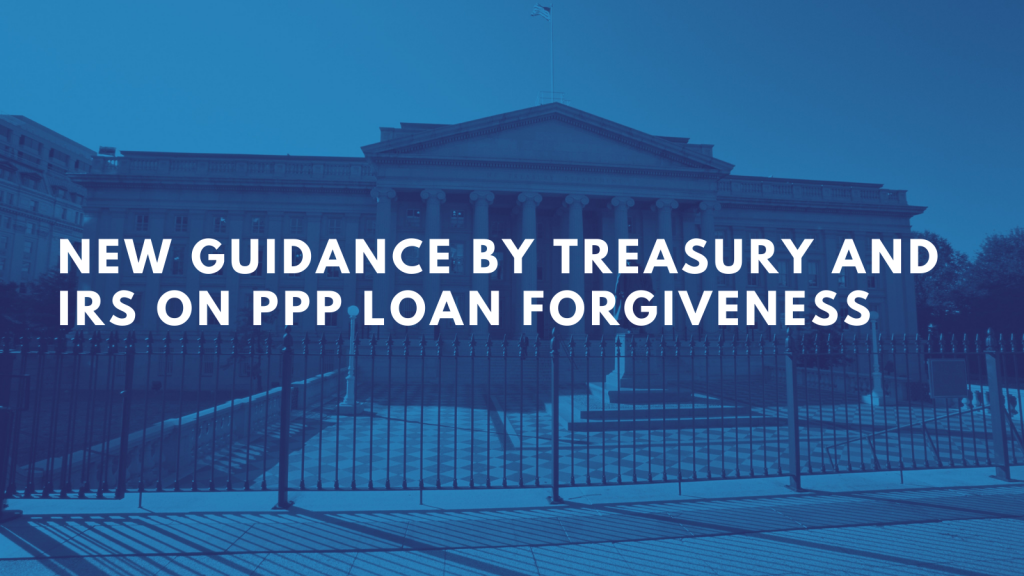
In guidance issued last week, the IRS has clarified the tax treatment of expenses where a Paycheck Protection Program (PPP) loan has not been forgiven by the end of the year the loan was received.
Since businesses are not taxed on the proceeds of a forgiven PPP loan, the expenses are not deductible. This results in neither a tax benefit nor tax harm since the taxpayer has not paid anything out of pocket.
The guidance came in the form of a revenue ruling (Rev. Rul. 2020-27) which addresses the issue of borrowers who pay expenses in 2020 but whose PPP loan is not forgiven until 2021, and a revenue procedure (Rev. Proc. 2020-51) that provides a safe harbor for PPP borrowers that have their loan forgiveness denied or who choose not to request loan forgiveness.
Rev. Rul. 2020-27 addresses the question of whether a taxpayer that received a PPP loan and that paid or incurred certain otherwise deductible expenses can deduct those expenses in the tax year in which the expenses were paid or incurred. This is if, at the end of that tax year, the taxpayer reasonably expects to receive forgiveness of the covered loan based on the otherwise deductible expenses.
The revenue ruling discusses two situations in which a taxpayer receives a PPP loan in 2020 and pays expenses, including payroll, mortgage interest, and rent, that are eligible expenses under Section 1106(a) of the CARES Act. The IRS says in both situations, the taxpayer has a reasonable expectation of reimbursement (in the form of loan forgiveness) at the end of 2020; therefore, deduction of the expenses is inappropriate.
In Rev. Proc. 2020-51, the IRS issued safe-harbor rules that allow a taxpayer to claim a deduction in the taxpayer’s 2020 tax year for certain otherwise deductible eligible 2020 expenses. This is if the taxpayer received a PPP loan that the taxpayer expects to be forgiven after its 2020 tax year, and in a later year the taxpayer is denied PPP loan forgiveness, in whole or in part, or the taxpayer decides not to request PPP loan forgiveness. In that situation, under the revenue procedure’s safe harbor, the taxpayer can deduct some or all of the expenses on a timely filed (including extensions) original tax or information return for the 2020 tax year, an amended 2020 return or administrative adjustment request, or a timely filed original tax or information return for the subsequent tax year.
To qualify for the safe harbor, taxpayers must attach a statement to their return titled “Revenue Procedure 2020-51 Statement” that contains:
- The taxpayer’s name, address, and Social Security number or employer identification number;
- A statement specifying whether the taxpayer is an eligible taxpayer under either Section 3.01 of the revenue procedure, for a taxpayer who applied for loan forgiveness in 2020 (or as of the end of the 2020 tax year intended to apply for loan forgiveness in a subsequent tax year) and the application was denied in whole or part, or under Section 3.02, for a taxpayer who applied for loan forgiveness in 2020 (or as of the end of the 2020 tax year intended to apply for loan forgiveness in a subsequent tax year) but in a later tax year decides to irrevocably withdraw its request for forgiveness;
- A statement that the taxpayer is applying the safe harbor in Section 4.01 of the revenue procedure for expenses claimed in 2020 or Section 4.02 for expenses claimed in a later year;
- The amount and date of disbursement of the taxpayer’s loan;
- The total amount of covered loan forgiveness that the taxpayer was denied or decided to no longer seek;
- The date the taxpayer was denied or decided to no longer seek covered loan forgiveness; and
- The total amount of eligible expenses and nondeducted eligible expenses that are reported on the return.
Nothing in the revenue procedure prevents the IRS from examining tax returns to determine whether the taxpayers qualify to deduct the expenses in question.
The procedure is effective for tax years beginning in 2020. However, there are still some members of Congress and the ACIPA who are lobbying to make these expenses deductible, therefore the final verdict is yet to be determined. If you have any questions or concerns regarding this new guidance, please do not hesitate to contact us.

